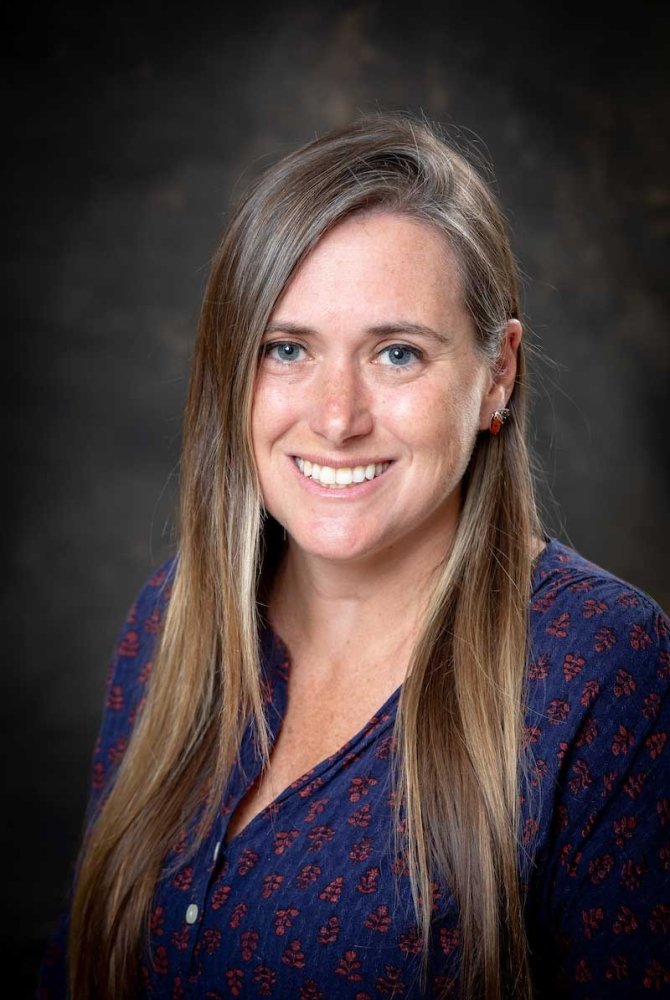
Dr. Jillian Wise
- Assistant professor
- Email:
- jillian.wise@salve.edu
- Phone:
- (401) 341-2822
O'Hare Academic Building, Room 250
- Research:
- google.scholar
- Website:
Areas of Expertise
- Cancer genomics, cancer immunology, computational analytics, drivers of resistance to cancer therapies
Education
- B.S. in biology and biotechnology, Worcester Polytechnic Institute (2007)
- Ph.D. in biomedical sciences, University of Texas Health Science Center and MD Anderson Cancer Center Graduate School of Biomedical Sciences (2013)
What's My Why?
Driven by a desire to reduce the suffering caused by cancer, I have focused my research career on finding reasons why cancer relapses or does not respond to drugs that we have spent decades developing. Through research, education and innovation, I strive to uncover solutions that alleviate pain and create a better quality of life for cancer patients. My undergraduate lab is currently using computational analytics, computers and programming languages to explore ways to uncover biological markers, at the DNA or RNA level, of resistance without the use of invasive surgeries.
Professional Experience
In addition to my role as assistant professor at Salve, I serve as an affiliate member of the Molecular Informatics Core at the University of Rhode Island and as an affiliate member of the Stott Lab at the MGH Center for Cancer Research, as well as at the Broad Institute of MIT and Harvard. I am proudly heavily involved in the rare disease community and act as the Scientific Advisory Board member and Director for the Collagen VI Research Charity COL6FUND, contributing to advancements in rare disease research. Additionally, I maintain active memberships in the American Society of Hematology and the American Association for the Advancement of Science. A passion for travel further complements my professional and scientific endeavors. My global perspective is enriched by international experiences, having lived in Oslo, Norway, and studied abroad in London and Namibia.
Selected Publications
Ruiz-Torres, Daniel A, et al. “Dendritic Cell Effector Mechanisms and Tumor Immune Microenvironment Infiltration Define TLR8 Modulation and PD-1 Blockade.” Frontiers in Immunology, vol. 15, 4 Dec. 2024, https://doi.org/10.3389/fimmu.2024.1440530. Accessed 20 Feb. 2025.
Wise, Jillian F, et al. “Mutational Dynamics and Immune Evasion in Diffuse Large B-Cell Lymphoma Explored in a Relapse-Enriched Patient Series.” Blood Advances, vol. 4, no. 9, 6 May 2020, pp. 1859–1866, ashpublications.org/bloodadvances/article/4/9/1859/454766/Mutational-dynamics-and-immune-evasion-in-diffuse, https://doi.org/10.1182/bloodadvances.2019001325. Accessed 21 Oct. 2024.
Shreoshi Pal Choudhuri, et al. “Acquired Cross-Resistance in Small Cell Lung Cancer due to Extrachromosomal DNA Amplification of MYC Paralogs.” Cancer Discovery, vol. 14, no. 5, 21 Feb. 2024, pp. 804–827, aacrjournals.org/cancerdiscovery/article/14/5/804/745033/Acquired-Cross-Resistance-in-Small-Cell-Lung, https://doi.org/10.1158/2159-8290.cd-23-0656. Accessed 11 Nov. 2024.
Bai, Baoyan, et al. “Multi-Omics Profiling of Longitudinal Samples Reveals Early Genomic Changes in Follicular Lymphoma.” Blood Cancer Journal, vol. 14, no. 1, 2024, p. 147, pubmed.ncbi.nlm.nih.gov/39191762/, https://doi.org/10.1038/s41408-024-01124-5.
Raghu, Ananya, et al. “Deep Learning Based Identification of Tissue of Origin for Carcinomas of Unknown Primary Utilizing Micro-RNA Expression (Preprint).” JMIR Bioinformatics and Biotechnology, 18 Jan. 2024, bioinform.jmir.org/2024/1/e56538, https://doi.org/10.2196/56538.
